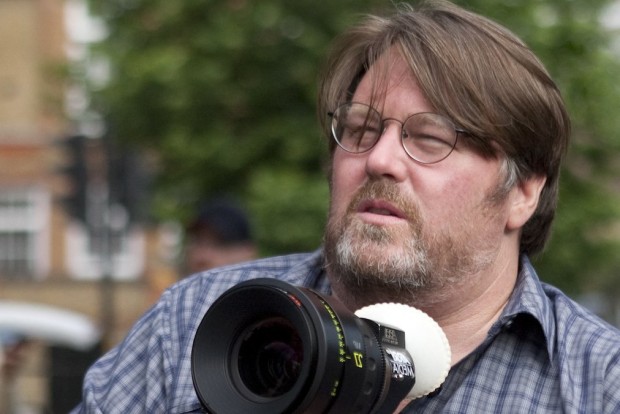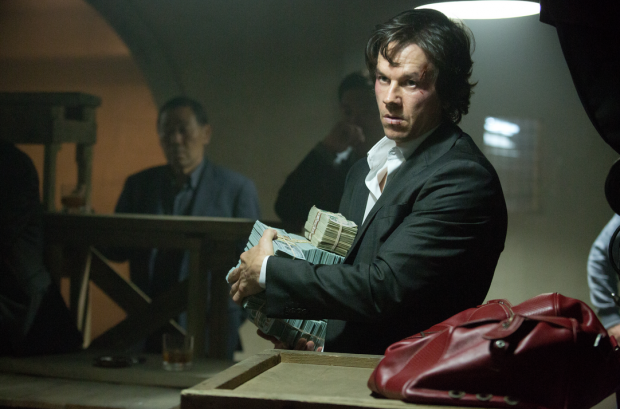
No stranger to the crime drama genre after winning an Oscar for his work on The Departed, screenwriter William Monahan is back with The Gambler. Although it may also star Mark Wahlberg, it’s an altogether different beast of a film. In this loose remake of the James Caan-led 1974 film, Monahan takes the basic conceit of a gambling addiction and makes it unapologetically his own, with extended monologues and an unexpected sense of veracity.
We recently sat down for a candid one-on-one conversation with the screenwriter during the New York press junket. Among the topics discussed were how Rupert Wyatt shot his first draft, the division of labor on this production, his distaste for both the recent glut of superhero films, the financing behind independent productions, the increasing rarity of mid-budget adult dramas in Hollywood, and much more. Check out the full conversation below.
This film balances fast-paced sequences with plenty that give room to breathe. Can you talk about that writing process?
Well, I just wrote them. [Laughs]
Were there outlines, or did you know going in that there would be these 10-minute monologues?
Speeches and scenes just go as long as they naturally want to go.
I’d read that Mark Wahlberg went over the script twice a day to prepare for this role. What was it like seeing your words come to life?
Well, I saw the picture before it was finished at a screening at Paramount and it was just terrific. Then I saw it again at the premiere here in New York and I loved it again. They did a really great job. It’s one of those things that seems almost magic because, on this one, there was a 100% division of labor. I wrote the script, they went off and just the first draft, I just got to see what they did. There was no sort of back-and-forth. I was off shooting something else. I kind of liked it, just writing the script and walking away. Then, all of a sudden, somebody comes back and there was the film.
In terms of your original vision of the movie and then what you see on screen, was there an aspect that you were pleasantly surprised to find? Did Wyatt bring something to life in a different than you’d expected?
They are very talented people interpreting a piece of work and interpreting it creatively, so obviously I’m thrilled by a very great deal of it.
I how this movie skirts conventions of a crime drama. The scene in which Wahlberg’s character simply says he doesn’t have the money and he can’t promise he will get it, for instance. Every expectation in this movie is slightly turned and it helps to keep one’s interest.
Yeah, it’s amazing that somebody telling the truth can seem to be an explosive plot twist. [Laughs]
Exactly. Is that something with crime dramas nowadays, where you watch them and you know it’s going through the motions?
Well, I know when people owe money in films, there’s always someone going, “Oh, no. Oh, my God. I’ll pay you. I’ll pay you.” The fact is, what would you really do in those circumstances? I mean, he doesn’t have the money and he has no way to get it. The only way that the guy who loaned him money is going to get any money is to give him more money. So he simply tells him the truth. I suppose truth is a rare commodity, also in film, but in films’ reality it’s a rare commodity.

That also comes in with John Goodman’s “fuck you” speech. There’s so much truth to that. I always wondered, in films, if a character has enough money to invest 3 to 5 percent and then do whatever you want for the rest of your life…
Yeah.
Is that philosophy something you go by as you can focus on your own projects?
Yeah, to a certain extent, I suppose. Now, I’ve done whatever I’ve done. I’m in my ’50s and I haven’t been an idiot over the last twenty years with money or anything. There is a certain degree of freedom. If I did something else I’d most definitely be an early retiree, except I love what I’m doing. What Goodman says is true. In an earlier scene he won’t give Mark’s character any money unless he has Mark’s character say he’s not a man, which Mark’s character refuses to say. The thing is there are just certain things you have to do as a man through simple husbandry of what you’ve got to look after. A house with a 20-year roof and the car with a million-mile motor and the taxes paid by savings, that’s not a bad idea for anyone if you can get away with it.
Yeah, I like that philosophy. You’ve obviously worked with Mark Wahlberg in The Departed in Boston. What was it like bringing him to LA? The way you capture LA is you see things you’ve never seen before in LA. Were any of those locations scripted in?
Well, the general areas were scripted in. Koreatown, the Korean gambling thing, that was all scripted in. What Rupert did with it was his own look-out, and he did great stuff.
I’ve read a few interviews where you’ve said LA can be an unsettling place or just a vast area with a lot uncertainty.
Yeah. Well, I kind of like LA, but my problem with LA was — apart from a brief period when I was a kid — I was always kind of on the sharp end of LA, as they used to say the concord. My LA experience has been rather first-class from the beginning, and so I had to kind of get out there and take a look around and see different areas, and Justine [Suzanne Jones, president of development at his company, Henceforth Pictures], who is a native, was instrumental in showing me downtown LA, which I didn’t even know. I only recently learned it has a subway. [Laughs]
 In the movie you see Mark Wahlberg’s childhood a bit. I love the cut where he gets thrown into the bathtub and then he goes into the pool. Was there ever more to that aspect?
In the movie you see Mark Wahlberg’s childhood a bit. I love the cut where he gets thrown into the bathtub and then he goes into the pool. Was there ever more to that aspect?
No, the thing in the bathtub — that’s entirely Rupert.
Was there more to your draft about his father and their relationship together?
No, mine ended with, “Whatever did happen to Dad?” Which, I think, many of us can agree sums it all up. [Laughs] Who wants to put more exposition when one can?
You’ve been behind the camera twice now, and I know it’s not time yet to talk about Mojave, your second feature. I’m curious, though, what you learned from your second movie compared to your first?
I think I’m with Paramount right now because I don’t like independent film. I don’t like the way it’s financed. I don’t like the influences that are brought to bear on it. I don’t like having to stand fire globally for somebody else’s bad decisions, which is what happened to my first film. So it hasn’t happened in my second and may not. But I don’t like independent film and I don’t like the way it’s financed. I can’t repeat that enough. There are too many partners, there are too many cooks, there are too many people going after fees, rather than good product, and we all lose because of that. Artists and audiences, we all lose because of the people scraping their tiny little fees off of a slate of independent films.
Even though this is a studio film, it has kind of an independent mindset to it.
Yeah.
I mean, they shot your first draft, which is kind of incredible in Hollywood. Did you like that mindset, where you get the benefits of a Hollywood production, but it feels like there is an independent influence in the style?
Yeah, definitely. Like I said before, it’s good to see a studio… the guys at Paramount are just great. It’s good to see a film which isn’t about a superhero leaping around the place wearing helmets and, you know, CGI destructions of cities and stuff like that. I’m just fucking sick of it, personally. I mean, I love a city being destroyed as much as anybody, but haven’t we had too much of it?
There’s only more to come with the slate of movies. They’re predicting what people will like five years from now. Do you think that’s kind of ridiculous? Superhero movies lined up for the next six years?
Well, they are going to start to lose money and when they start to lose money… you know, there’s a thing where it said nobody lost a dime or a nickel, or whatever it is, underestimating the intelligence of the American people, but I think that studios are coming damn close to underestimating the intelligence of at least the American audience. For a foreign audience that sees things in subtitles and wants to see expensive American visual effects, it may be a different story, but I think, by and large, people are much too smart to go for that sort of horseshit for very long.
This movie is a kind we don’t get anymore, where it’s not a wild budget, but it is studio-backed and it’s getting a wide release on Christmas, which is kind of amazing. Can you comment on the decline of this adult-centered, mid-budget drama?
I think it is rare and I think it’s a credit to not only the studio, but the producers, including Mark and his partner, Steve Levinson, both of who were instrumental in getting this film made, as well as the very superior crew at Paramount.

The Gambler is now in limited release and expands on Christmas Day.

